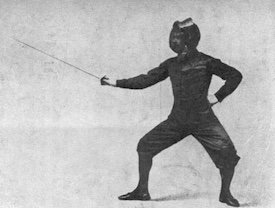Hamltnblue
New Head-Fier
I actually read about 50 and have some common senseNice of you as a new member of the forum with a dozen posts to just casually say people here do not know what they are talking about. You don't even need to read "the entire 977 pages." How much did you read? One page? Three pages?
Cables are the same in the sense that as long as they work and do their job they don't stop you enjoying the music. The potential improvements in sound quality are so increadibly tiny, that for a normal person or even an audiophile it is meaningless. Other things are massively more important such as ergonomics or the frequency response of the headphones. I write this as someone with a university degree in electrical engineering.
Even if we admitted cables do matter, what are people supposed to do with it? Buy ALL cables in the word and select the best 10 out of them to be used in different situations: One cable for rock music, another for classical music etc. Is that what you want? Sorry, but I am not interested of cables. My cables works and I enjoy music. I don't see the point of thinking about some other cables being better. There is always something better. If I keep chasing for better I can never be happy for what I have now. It's not 1948 anymore when audio gear was bad. Decent audio gear in 2021 is so good, that music listening experience is bottlenecked by bad music production. Well produced, mixed and mastered recordings sound phenomenal if you have decent audio gear. The best cables in the World don't help you at all if the recording is ruined by lousy production and loudness war.
The ways we see the World are not the same. Differences in attitude and beliefs can have a significant effect on happiness of individuals. Whenever something in our lives is "good enough" (such as "mediocre" headphones cables) we better take them as victories in life to be happy about, because there are so many things in our lives that are not "good enough" and also not easily improved. Thank God at least normal audio cables don't suck!
 . And a degree in electrical engineering is not a degree in electronic engineering, and definitely not audio engineering. There are several here that may not have a degree in anything that may actually have a better knowledge in the subject. I too have a sound background, but am always trying to learn. In my opinion, readers should shy away from advice from anyone who knows all and has closed the book.
. And a degree in electrical engineering is not a degree in electronic engineering, and definitely not audio engineering. There are several here that may not have a degree in anything that may actually have a better knowledge in the subject. I too have a sound background, but am always trying to learn. In my opinion, readers should shy away from advice from anyone who knows all and has closed the book. I do agree to the majority of your post.
The point of the post was simply to point out, just because something cannot be seen or heard from any one of us, doesn't mean that it isn't experienced by another.
If you admit that differences in a cable spec are small, you might consider that that small difference is enough to potentially filter out a small subtle portion of a sound.
Some people are sensitive to these changes. It is easy to be a nay Sayer if any of us isn't one of them.























